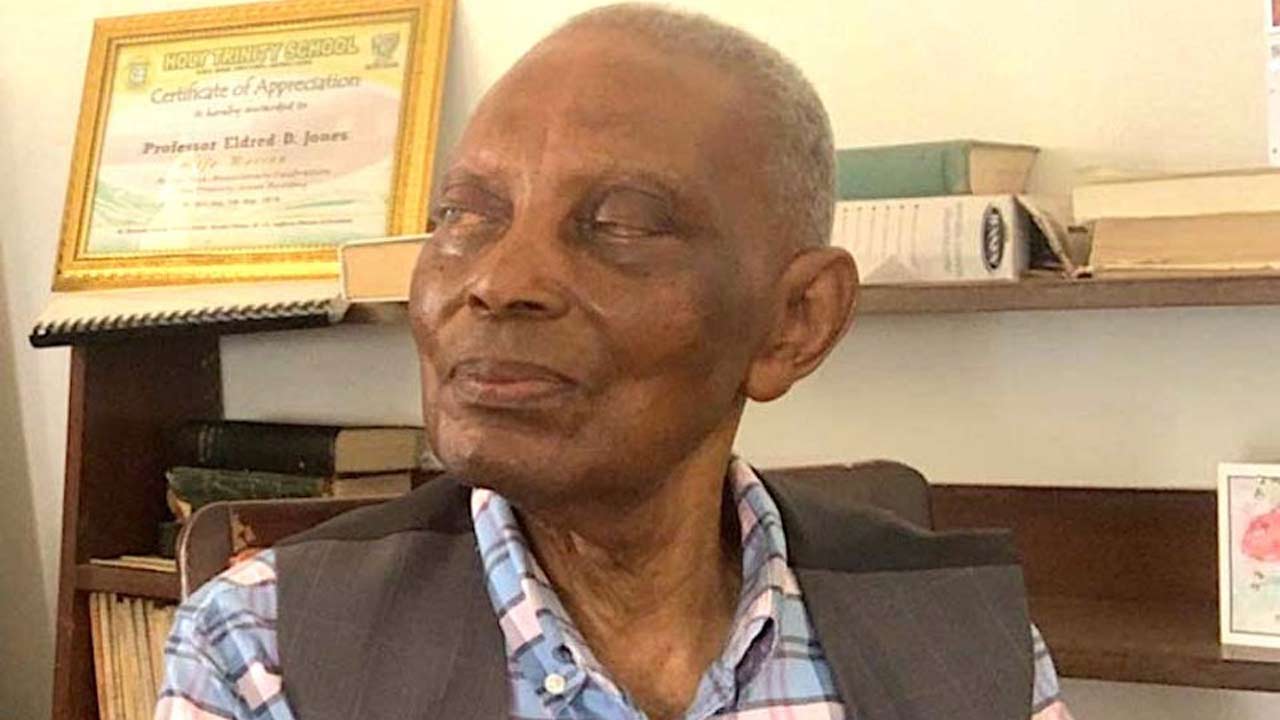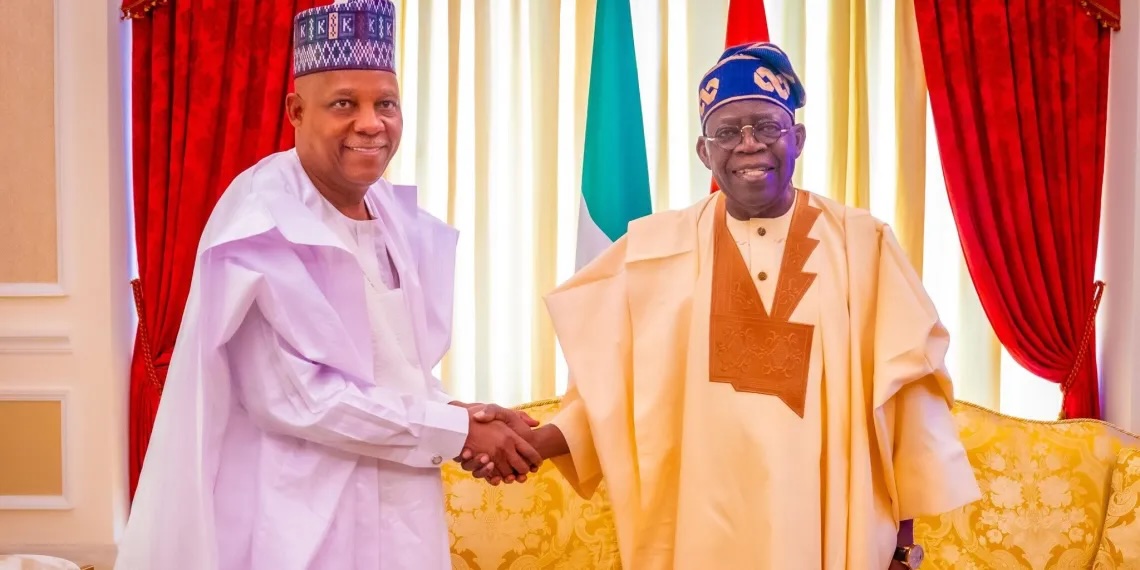
In searching for information on Professor Jones, you will be told that your search does not match anything in their possession if you write his name in full with the middle Yoruba name. Yet, Durosimi marked Prof. Jones all his long life of achievement. He never paused for breath but moved from one activity to another. The most dramatic was what he did when he noticed that he was losing his sight. He immediately began to learn Braille. And with the assistance of his wife continued his multiple academic works. His passing on March 21, 2020 is the occasion to pause to appreciate Professor Jones and his work in putting up the building that is African Literature today.
He was tall, six feet plus, robust in good health, and capable of giving all his ears to you. By his side, a few inches shorter than prof was always his wife Marjorie Jones until her death in 2015.
There is a confusion about the middle name Durosimi, which needs to be corrected. The Sierra Leonean poet and novelist Syl Cheney-Coker quoting Nigerian super poet Niyi Osundare translates the name as ‘stay and bury me’. Syl now says how Professor Jones has stayed and buried his wife and one of his daughters he could himself pass on. This interpretation is to be found in a piece that Syl wrote for the Patriotic Vanguard of March 24, 2020 entitled, “Becoming Durosimi: Reflections on Professor Eldred Jones’s life”. A desperate mother who had suffered in the hands of abiku might ask this child to survive and bury her in old age. The name could not mean that the child should live long and bury everybody around him including his wife and daughter before being buried himself! Eewo, kamari!!!
Young Eldred Jones Jr went to CMS Grammar School Freetown and Fourah Bay College Sierra Leone. This is the oldest university in West Africa heaving been established in 1827. It was affiliated to the University of Durham 1876 to 1967. In 1950 Eldred Jones went to Corpus Christi College Oxford to do a degree in English. He later wrote his doctoral dissertation on the treatment of Africans in Elizabethan and Jacobean times. His publication Othello’s Countrymen: A Study of the African in Elizabethan and Jacobean Drama is based on that study although it was not published until1985. Before then in 1973 he published the first full-length book study The Writings of Wole Soyinka.
Two years before that he published The Elizabethan Image of Africa. In 1968 African Literature Today was founded by Heinemann Educational Books as a bi-annual publication of criticism of poetry, prose, theatre as well as reviews. Professor Jones edited the journal for the next 30 years. From the issue on the novel in Africa in 1971 it became a once-yearly publication. It continues today under the editorship of Professor Ernest N. Emenyonu who took over in 2003. This publication is where to go to read the story of African literature.
In middle age Professor Jones lost his sight in both eyes. Since it was gradual rather than sudden he learnt to read Braille. Of course, even now few African books are available in Braille. So Professor Jones depended on his wife to read to him and to write his books including his autobiography Freetown Bond: A Life under Two Flags in 2012. As one writer summarised Prof. Jones: “for more than 50 years he slept and woke up reading and writing African literature.” Recognition came slowly. In 1966 the first World Festival of Negro Arts awarded its first criticism prize to Prof Jones who did not even know of the event until his landlady showed the announcement in the Guardian newspaper.
In 2002 the African Studies Association of the United Kingdom presented their Distinguished Africanist Award jointly to Professor Eldred and Mrs. Marjorie Jones.
On the last day of the Harare Book fair of 1985, a few of us from West Africa decided that we wanted to give the couple our own award to show our appreciation. We contributed some money and went into the belly of the fair looking for a fitting book for a book man. It would have been appropriate to have given him a book in the new language he had learnt. After all he had spoken of seeing a text with your eyes or feeling a text with your fingers to join the writer in the process of creation.
Being read to does not give you such intimacy with the work. The only book of mine ever translated into Braille is Season of Migration to the South and I had no copy with me. Whatever we get will have to be an ordinary book. It would have to be a big hard back book illustrated lavishly so that Marjorie, a fashion designer before they got married in London in 1952 will enjoy as well. We settled for Ali Mazrui’s The Africans: A Triple Heritage. We wrote appropriately commendable message and signed our names. Ours was a heart cry for something, some organisation to come to our rescue and recognise this giant among us, show that his incredible work was appreciated. But this was Africa that could not even make one book fair function!
We were to argue afterwards as to the idea of giving them a book instead of cloth material, painting or sculpture or any other work of art.
The enormity of the work that Prof Jones did, including the sheer physicality of editing issue after issue of the African Literature Today. And the fact that the wife had to write it down after and read to him, it is too much. His work and the work of his wife are central to “the establishment of the study of African writing in the new universities of Africa, Britain and North America.”
“Sierra Leone and Africa may have lost the body of Eldred Jones, but his knowledge, wisdom, and grace live on in all those who have encountered the man and his work.”






